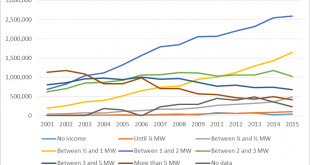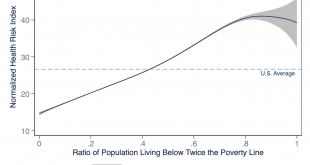Biographies Patricia Blankson Akakpo is a Programme Manager of the Network for Women’s Rights in Ghana (NETRIGHT) – a women’s rights and economic justice advocacy network. Patricia holds a BA in political science with philosophy; MA in development studies with specialization in human resources and employment; and gender studies; and a diploma in development leadership. Patricia joined NETRIGHT in 2003. She has over twenty-five years of experience in gender and development in Ghana working...
Read More »Women’s Economic Empowerment and Control over Time in Sub-Saharan Africa (Nov 1-2)
Biographies Patricia Blankson Akakpo is a Programme Manager of the Network for Women’s Rights in Ghana (NETRIGHT) – a women’s rights and economic justice advocacy network. Patricia holds a BA in political science with philosophy; MA in development studies with specialization in human resources and employment; and gender studies; and a diploma in development leadership. Patricia joined NETRIGHT in 2003. She has over twenty-five years of experience in gender and development in Ghana working...
Read More »Higher Education in Brazil: Interrupted Inclusion?
by Ana Luíza Matos de Oliveira Brazil is a highly unequal country — so is the access to its higher education system. However, in the beginning of the 21st century (2001-2015), there was a convergence between the profile of Brazilian higher education students and the Brazilian population in terms of income, race, and region, although many inequalities still exist. Now, this process might be at risk. From 2001 to 2015, economic growth and improvements in the labor market affected...
Read More »We Need Class, Race, and Gender Sensitive Policies to Fight the COVID-19 Crisis
Luiza Nassif-Pires, Laura de Lima Xavier, Thomas Masterson, Michalis Nikiforos, and Fernando Rios-Avila Disproving the belief that the pandemic affects us all equally, data collected by New York City Department of Health and Mental Hygiene and a piece published today in the New York Times shows that the novel coronavirus is “hitting low-income neighborhoods the hardest.”[1] In a forthcoming policy brief, we share evidence that this pattern would be the case and provide a solid...
Read More »The Coronavirus Does Not Discriminate; Unfortunately Our Economic System Does
In the last 24 hours, two big news stories regarding the economic impact of the Covid-19 pandemic have broken. The first is news that the Senate has passed a $2 trillion stimulus package that legislators claim is intended to alleviate the economic damage caused by the responses to the unfolding pandemic: closures of schools and businesses as well as the social isolation of much of the population. The second–a reported 3 million new unemployment claims in the last week alone–is a direct...
Read More »Why There Is No “Crisis of Capitalism” — Branko Milanovic
Western dissatisfaction with globalization is wrongly diagnosed as dissatisfaction with capitalism, when in fact it is the product of the uneven distribution of the gains from globalization.... ProMarket — The blog of the Stigler Center at the University of Chicago Booth School of Business Why There Is No “Crisis of Capitalism” Branko Milanovic | Visiting Presidential Professor at City University of New York Graduate Center and senior scholar at the Stone Center on Socio-economic...
Read More »IMF boss says raise taxes on the rich to tackle inequality— Larry Elliott
Kristalina Georgieva, the IMF’s managing director, said higher marginal tax rates for the better off were needed as part of a policy rethink to tackle inequality. In a sign of how the IMF has moved away from the tax-cutting approach that once formed a central part of its policy advice, Georgieva said there needed to be a different approach to tackling what had become “one of the most complex and vexing challenges in the global economy”. The IMF chief, writing in a blog, said: “Inequality...
Read More »Production and then distribution, or distribution and production together — Branko Milanovic
Must-read! Branko Milanovic sums up the fundamental issue affecting political economy as economics in relation to society. Neoclassical economic is like doing engineering with a total focus on efficiency and ignoring resilience. This approach views redundancy as inefficient. This is like eliminating the emergency brake on vehicles. An economy is the material life-support system for a society and its culture. It is the welfare and progress of the society that set the priorities....
Read More »Economic Policy Institute — Labor Day Series
Economic Policy InstituteBlack workers endure persistent racial disparities in employment outcomesPart of the series Labor Day 2019: How Well Is the American Economy Working for Working People? Summary: Black workers are twice as likely to be unemployed as white workers overall (6.4% vs. 3.1%). Even black workers with a college degree are more likely to be unemployed than similarly educated white workers (3.5% vs. 2.2%). When they are employed, black workers with a college or advanced degree...
Read More »Lars P. Syll — a primary reason for the rise of inequality
Economic liberalism expressed as "free market capitalism" aka neoliberalism is incompatible with political liberalism as liberal democracy owing to the social effects of the inequality that favoring economic liberalism in the above sense leads.Lars P. Syll’s BlogEconomics — a primary reason for the rise of inequalityLars P. Syll | Professor, Malmo University
Read More » Heterodox
Heterodox


